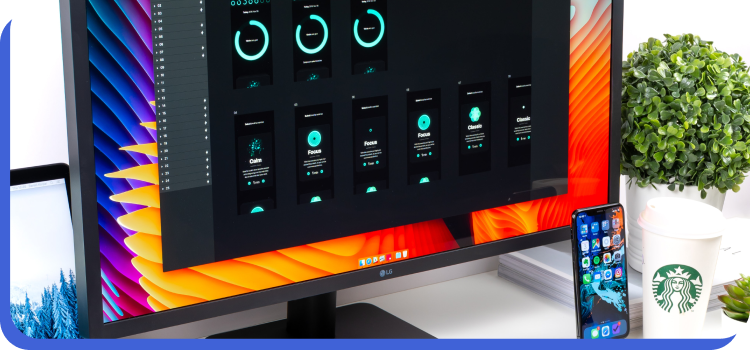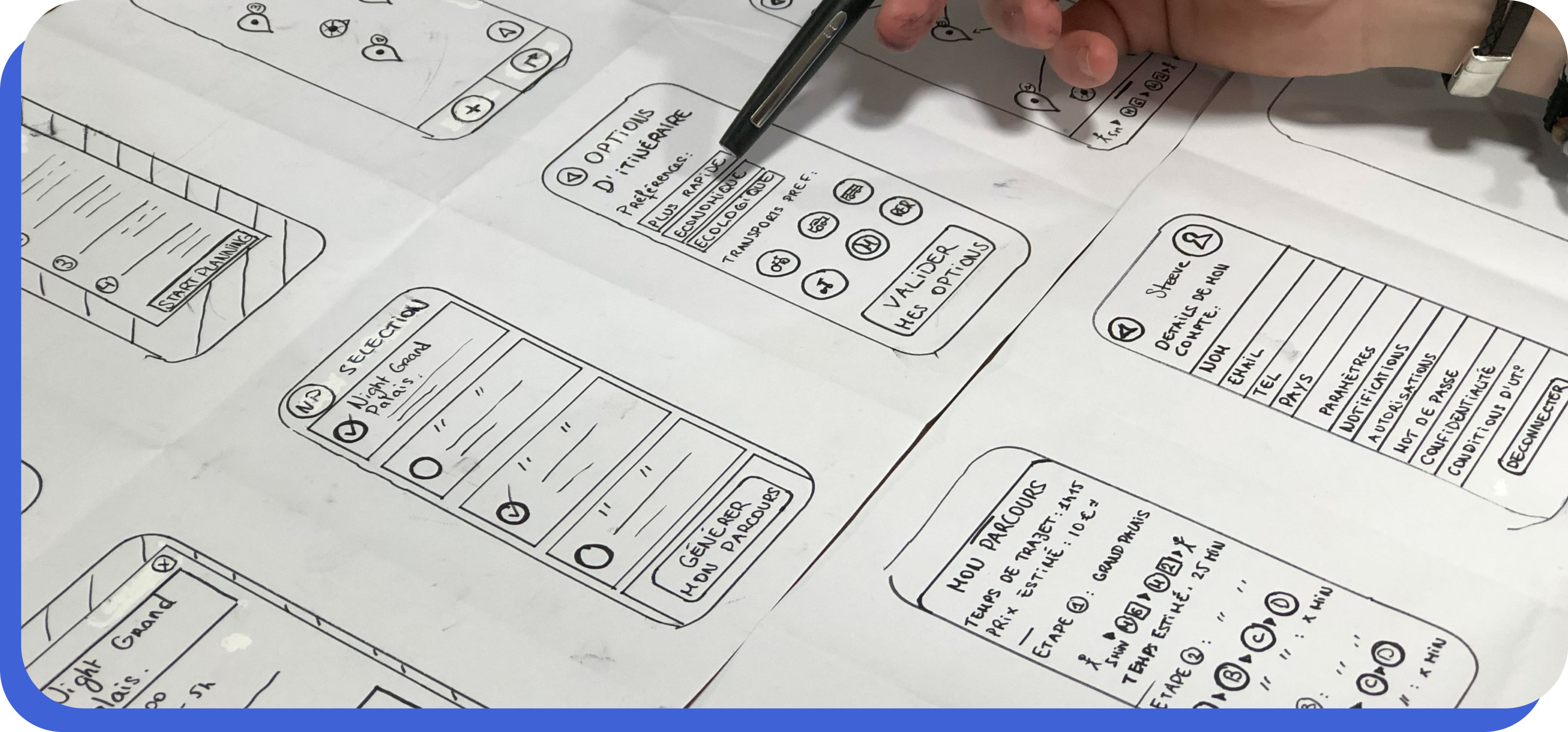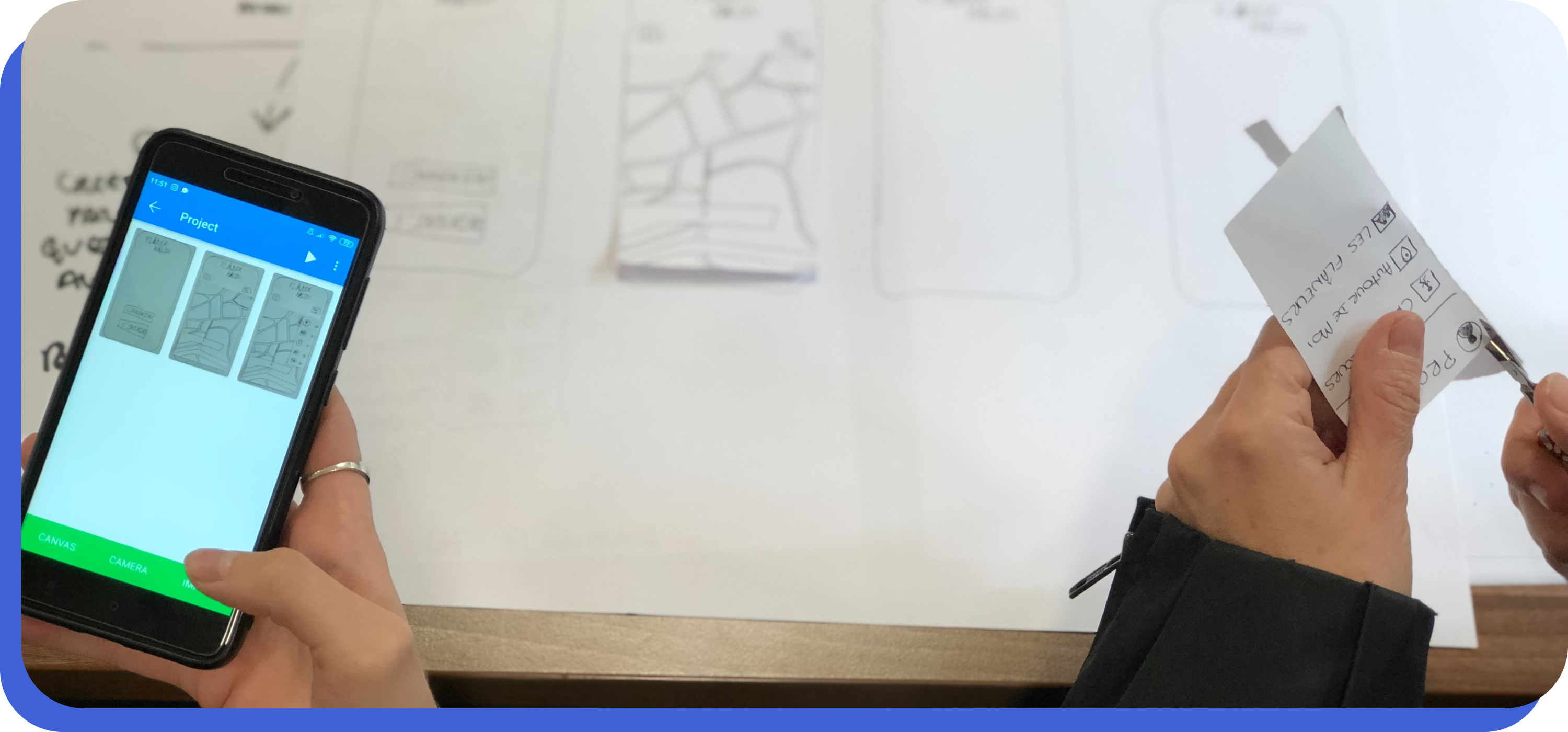The Pain of App Distribution - TestApp.io solves it!

App testing and distribution can be a pain for development teams - especially when it comes to testing on different devices and different mobile operating systems. TestApp.io was built with this in mind, and offers a private app store for your team to test your app releases before releasing them to Google & Apple stores. We make app testing simple by providing real devices, real user data, and real test cases. So why wait? Contact us today to get started!
Introduction to Mobile Application Testing
Testing mobile applications is essential for ensuring they meet customer expectations. This is where TestApp.io comes in - it provides a full suite of tools that make testing easy and efficient. There are many different ways to test an application, but one of the best is using a phone emulator. This simulates a mobile device and allows you to test the application on different devices, including desktop and mobile phones. Crash reporting and real-time analytics help you track progress and find problems early on, so you can swiftly address them. Overall, TestApp.io is a great tool for mobile application testing that helps you save time and money.
Types of Mobile Testing
Testing apps for mobile compatibility can be a time-consuming and tedious task. That's where testApp.io comes in! With comprehensive mobile testing services that cover all app types and distribution methods, testApp.io helps developers to ensure the quality of their apps before they go live in the market. This way, they can avoid any possible disruptions or issues later on down the line. Additionally, app distribution is one of the most important aspects of mobile application development - without it, your app might not reach its full potential!
The significance of Mobile Application Testing
Testing mobile applications is an essential part of any software development process. Not only does it ensure that the app functions as intended, but it can also identify any security risks or user interface flaws before you put your app into production. Not testing your mobile apps puts you and your users at risk, so make sure to get in touch with TestApp.io for comprehensive application testing services that will help protect both you and them!
Basic Difference Between Mobile and Desktop Application Testing:
When it comes to mobile application testing, companies usually focus on ensuring that the app works properly on a range of different devices. This includes testings for smartphones and tablets as well as mobiles running different operating systems such as Android or iOS. Desktop application testing, on the other hand, is more focused towards finding any bugs in the software code. This type of testing is normally done on desktop computers - usually laptops or desktops.

Types of Mobile App Testing:
When it comes to app testing, there are basically two types of testing that need to be done - functional and performance. Performance testing is mainly used to measure how quickly the app loads, responds to user actions etcetera. While functional testing focuses on checking if the app functions as intended and doesn't have any bugs. One of the most comprehensive mobile apptesting platforms out there is TestApp.io! They offer a full suite of mobile app test services which covers all aspects of mobile application development - from usability testing through performance and security tests!
Mobile Application Testing Strategy
Testing mobile apps is essential to ensure quality and safety of your users. By using TestApp.io, you can easily get started testing mobile apps and reduce the time it takes to distribute them as well as achieve better Quality Assurance ratings. There are different types of testing that you can do - manual or automated - depending on the app's complexity and requirements. Testing helps in identifying potential issues before they cause any harm to your app's user base.
Recommended Tool
When it comes to app testing, there's no better tool than TestApp.io. This mobile application testing software makes it easy to test your apps on different devices and simulate user interactions. This way, you can catch any potential issues before they cause major problems for your users. In addition, TestApp.io also allows you to test different scenarios and see how your app responds in real-time - making sure that everything is working as intended!
Test Cases for Testing a Mobile App
Testing a mobile app is important, but it can be tricky to create the right test cases. With TestApp.io, this process has become much easier! This online tool helps you by taking care of all the tedious testing tasks for you - from creating test cases to running them. Moreover, TestApp.io makes tracking your app's progress and reporting results easy - perfect for QA teams! So not only do you save time on testing; you also get accurate feedback faster than ever before!
Typical activities and proceedings in Testing Mobile Application
Testing mobile applications can be a time-consuming and tedious task. That's why TestApp.io makes it easy for app developers by providing them with a testing platform that helps simulate real user scenarios. Moreover, app distribution is an important part of the mobile application development process - it ensures that the app reaches as many people as possible.
How to Test Mobile Applications on Both Android and iOS Platforms
Testing mobile applications on different devices is an important part of ensuring that your application functions as intended. By testing it on both Android and iOS platforms, you reduce the chances of any errors or glitches. Additionally, app distribution becomes much simpler with TestApp.io's Mobile Application Testing services.
Basic Difference between Android and iOS Testing
Testing is an important part of software development, and it should be conducted at various stages of the application development cycle. Tests for mobile apps need to be performed on real devices, while tests for web applications can be done using a simulated device or emulator. App distribution is also critical for app testing - Test App.io makes this process easy and efficient by providing test builds that mimic the actual user experience of your app on different devices and operating systems. Android testing requires different considerations than iOS testing due to their different strengths and weaknesses.

Key Factors in Mobile Testing
Mobile testing is an important aspect of app development that should not be taken lightly. There are a number of factors to consider when testing mobile apps, and TestApp.io provides a comprehensive solution for doing just that. The platform offers various tools and resources to test different parts of the app as well as ensure quality control before release. It also helps developers distribute their apps to the public in an efficient way while staying compliant with regulations around App Store distribution etc. Overall, TestApp.io plays an essential role in facilitating better mobile app testing across the board - both for developers and testers alike!
Why Mobile Device Testing Is Important
It's no secret that app distribution is one of the most important aspects of mobile app development. If your app doesn't reach its full potential, user experience will be compromised. That's where TestApp comes in - It allows you to test your app on mobile devices to find and fix issues before they affect users. This way, you can ensure a quality user experience from the get-go. Additionally, mobile device testing allows you to find device compatibility and size restrictions, which can save you time and hassle in the long run. So, if you're looking for a reliable and affordable mobile device testing solution, look no further than TestApp.io!
What Are the Types of Mobile Testing?
There's a lot of testing that goes into mobile app development, and it can be quite a pain to get it all done. That's where TestApp.io comes in! We offer acceptance test plans for iPhone and Android applications from $39/month or $149/year, which covers functional testing, end-to-end testing, and manual testing. We also offer a variety of automation tools, so you can easily execute test cases and track test results. What's more, our team is passionate about mobile app development, so you can be sure that your app will be tested thoroughly before it goes live. Thanks to TestApp.io, mobile testing has never been so painless!
Functionality
It is essential for an app to be functional before it is released to the public. This means that manual testing and beta testing are necessary, as well as app store optimization (ASO). Device testing can also help identify any compatibility issues with different devices.
Real Environment
There are different testing methods that rely on different devices, locations, and user inputs. manual testing is carried out by developers or testers using their own devices in a real world environment. automated testing uses various tools to test the app performance under various conditions such as load time and error rate. remote testing involves mobile device users being used to test the app from a different location than where it is currently being developed or tested. hybrid testing combines elements of manual and automated Testing methods to get an accurate picture of how the app performs overall
Non-Functional
Functional testing and performance testing are two essential steps when it comes to releasing bug-free mobile apps. Unit testing helps catch errors before they go live, while functional testing ensures that all features in the app work as expected. Both of these tests should be carried out on different devices and networks to make sure that your app works smoothly on different devices.
Device Testing: Which Ones? How Many?
Device testing can be a pain for small developers, but TestApp.io makes it simple and efficient. With TestApp.io, you can plan out which devices to distribute your apps to so that they reach as many people as possible. App distribution can be a pain for small developers, but TestApp.io makes it simple and efficient. There are different types of devices you need to test your apps on - phones, tablets, and laptops. So, if you're developing an app that needs to be tested on different devices, TestApp.io is the perfect solution for you!

Balance Data & Analysis
Developing an app is a long and painstaking process, which can be greatly improved with accurate data and analysis. Fortunately, there's a tool that can help you do just that - TestApp.io. With this application, you can test different versions of your app on different devices in order to find the one that best suits your target audience's needs. Furthermore, TestApp.io makes it easy to distribute apps to multiple devices simultaneously - so you don't have to waste time testing on only a few devices. This helps save both time and money on app development costs!
Optimize Your Lab Configuration
Testing your app is crucial for a successful launch. However, testing it on different devices can be time-consuming and resource intensive. That's where Device testing tools like TestApp.io come in handy. With this application, you can test your app on multiple devices simultaneously without having to spend hours switching between device types or running different tests on each one of them. You also get real-time data about user engagement, crashes, and performance issues as you go along so that you can optimize your lab configuration accordingly. Not to mention - test results help you identify any problems with your app before they cause any major damage!
Map Coverage Against Your Pipeline
Device testing is an essential part of app development and should not be left to the last minute. Automated testing services like TestApp.io can help you map coverage and identify issues quickly and efficiently, saving you time and money in the long run. Knowing how many devices you need to test against your pipeline will help you make the right decisions - for example, by identifying which devices are most important for your target audience or apps that have a high potential of being successful. Testing on different devices also helps ensure that your apps work correctly on all platforms, increasing usability and chances of success overall.
How Is Mobile Testing Different From Web Testing?
Testing mobile apps is important for two main reasons: to ensure quality app distribution and to identify any issues early on. TestApp.io helps to do both of these things quickly and accurately. As a mobile testing tool, it's important to have a robust mobile test plan in place. This will help you identify issues before they affect your users' experiences. In addition to mobile testing, TestApp.io focuses on the app's user experience - which is different from web testing. By simulating real users and their behaviors, TestApp.io ensures quality app distribution for your company. So don't wait - get started with TestApp.io today!
4 Types of Mobile Apps
Launching a mobile app can be a daunting task, but not with TestApp.io! This tool helps you test and distribute your app quickly and easily. TestApp.io also helps you avoid common app problems, like app crashes and poor shelf placement rates. So, if you're looking to create or distribute a mobile app, TestApp.io is the perfect solution for you. There are four types of mobile apps - those that sell products, services, content, or experiences. So, whatever your app's purpose, TestApp.io can help you get it on the app store shelves quickly and easily!

Native (iOS/Android)
Native (iOS/Android) apps are built specifically for a mobile device and offer a more user-friendly experience than hybrid apps. They tend to run smoother and look nicer than hybrid apps, which can be less expensive to create but may not have as long of a shelf life. If you are developing an app, it is important to make sure it is optimized for mobile devices so that users enjoy a smooth and seamless experience when using it on their smartphone or tablet.
Hybrid
Hybrid app development is the perfect solution for businesses that want to take their apps distribution to a whole new level. TestApp.io makes it easy for you to get your apps in front of as many people as possible - quickly and painlessly. Not only that, but you can also measure user engagement and see where improvements need to be made with ease!
Web
Today, the web is more important than ever as it provides a avenue for people to connect with each other and share information or content. Through social apps, users can stay connected with friends and family while consuming different types of content. mobile apps have come a long way in recent years and hybrid apps are now becoming increasingly popular. This type of app combines features from various app types into one single application that suits everyone's needs perfectly. Web applications are the simplest type of app, meaning they can be accessed through any web browser- no download required! Native mobile applications on the other hand require some level of programming knowledge in order to use them effectively- making them ideal for specific platforms like Android or iOS devices.
Progressive Web App (PWA)
Progressive Web Apps (PWAs) are becoming more and more popular as they offer a better user experience than traditional mobile apps. They behave and look like websites, but are installed on your mobile device. This makes them a great option for apps that need to be accessible offline, or when the user has low bandwidth. The features of PWAs make them ideal for increasing engagement: you can use push notifications and in-app navigation to increase the chances of users coming back to your app again and again. In addition, PWAs also have an advantage over traditional mobile apps in that they don't require an internet connection every time the app is opened - this saves data usage significantly on devices with limited connectivity options.
Mobile Test Automation Frameworks For Different Apps
Testing mobile apps is crucial for app developers, but it can be a tedious and time-consuming process. That's where TestApp.io comes in! This mobile test automation framework is perfect for both beginners and experts. It offers an intuitive user interface that is easy to use, making it perfect for testing different features and modules. Additionally, TestApp.io can be customized to fit the needs of your app - making it perfect for testing different aspects like user flows, functionalities, and performance. Overall, TestApp.io provides a comprehensive platform that helps developers automate their tests quickly and easily! So, if you're looking for a mobile test automation framework that can help you test different apps quickly and easily, then TestApp.io is the perfect solution for you!
Appium
Appium is a mobile test automation framework that helps you write tests for different apps. You can use it to automate user actions and screen captures, making app testing easier and more efficient. TestApp.io is the best app distribution platform for testing your apps! It has an easy-to-use interface and can be used to test native and hybrid apps, making it versatile enough for any type of app development project.
Espresso
Espresso is a mobile app testing platform that has been designed to streamline the quality assurance process for businesses of all sizes. It offers a comprehensive range of features, such as device emulation, app memory and network testing, which helps you test different apps quickly and accurately. Espresso also automationizes the entire testing process so you can focus on your business goals. So if you're looking for an easy-to-use and accurate mobile app testing solution, look no further than TestApp.io!
XCUITest
XCUITest is a mobile app testing platform that offers developers and testers flexibility and convenience. With its automation features, it makes app distribution a lot easier than ever before. You can test your apps on different devices in different languages and markets, which saves you time and effort. Furthermore, with the help of XCUITest's reporting tools, you can track the performance of your apps across various devices as well as measure user engagement rates!
How does TestApp.io help in app distribution?
Developing apps can be a daunting task, but it doesn't have to be. TestApp.io makes app distribution easy - from creating distribution profiles and App IDs to managing release notes and distributing apps through app stores and other platforms. This cuts down on development time and costs, and makes app launches a lot smoother and easier. All you need to do is focus on developing your app, and TestApp.io will take care of the rest. So, go ahead and test out TestApp.io today to see for yourself just how much easier app distribution can be!
Frequently Asked Questions
Is it ever okay to release a mobile application that is not fully tested?
Yes, it is sometimes okay to release a mobile application that is not fully tested. By testing app on a large scale through TestApp.io, you can save time and money in the end. The platform automates the process of app distribution, which enables for better quality apps. Additionally, you can use TestApp.io to test your app on different devices, operating systems, languages, and networks.
What types of devices should I test my applications on?
When it comes to testing your applications, there are many different devices you can test them on. Some of the most popular devices for app distribution testing include: smartphones and tablets, laptops, desktops, gaming consoles, and etcetera. By testing on different devices you can find any errors or glitches that may exist on a certain device. Additionally, this will allow you to determine the optimal device for your application.
How can I improve the speed and accuracy of my mobile application tests?
If you're looking to improve the speed and accuracy of your mobile application testing, then consider using TestApp.io. TestApp.io is a mobile application testing platform that automates the process of testing your app across different devices and networks. With this tool, you can improve the speed and accuracy of your tests by creating test scripts in advance and recording screen shots as needed. Additionally, TestApp.io integrates with several other tools to make it easier for you to track user feedback, find issues, measure performance, and more. So, whether you're testing on desktop or mobile devices, TestApp.io will help you achieve the results you need at a fraction of the time and effort.

Which software should I use to conduct my mobile application tests?
One of the best mobile application testing software options is TestApp.io. This platform allows users to test their mobile applications on various device types, including iOS and Android devices. Additionally, TestApp.io provides real-time results tracking of your testing so that you can improve your app faster than ever before.
What are some tips for testing mobile applications?
There are a few tips that can help you test mobile applications effectively. 1. Make sure your app is properly configured and ready for user testing before deploying it. This means that all functionalities of the app need to be functional, as well as any graphics and user interface. 2. Having an automated test plan will save you time and resources in the long run. A test plan will help you identify and test different areas of the app, such as user flows, performance, defects, feedback loops, security etc. 3. App distribution platforms like TestApp.io make it easy for developers to distribute their apps without any hassles or headaches. By simply submitting your app to one of these platforms, you'll get a wide range of users who can test it and provide you with valuable feedback. 4. When it comes to testing mobile applications, you need a functional app that can be installed on different devices. This includes testing on both android and iOS devices, as well as desktop browsers. By having a functional app in this format, you'll be able to test different scenarios and understand how the app behaves under different conditions.
Conclusion
Testing apps is hard. testing apps on different devices is hard. testing apps in different countries is hard. testing apps with different user profiles is hard. testing apps with different software versions is hard. testing apps with different devices and software versions is hard. testing apps with different user profiles and software versions is hard. testing apps with different devices and software versions and different user profiles is hard. test app distribution is hard. test app distribution with TestApp.io is easy!


